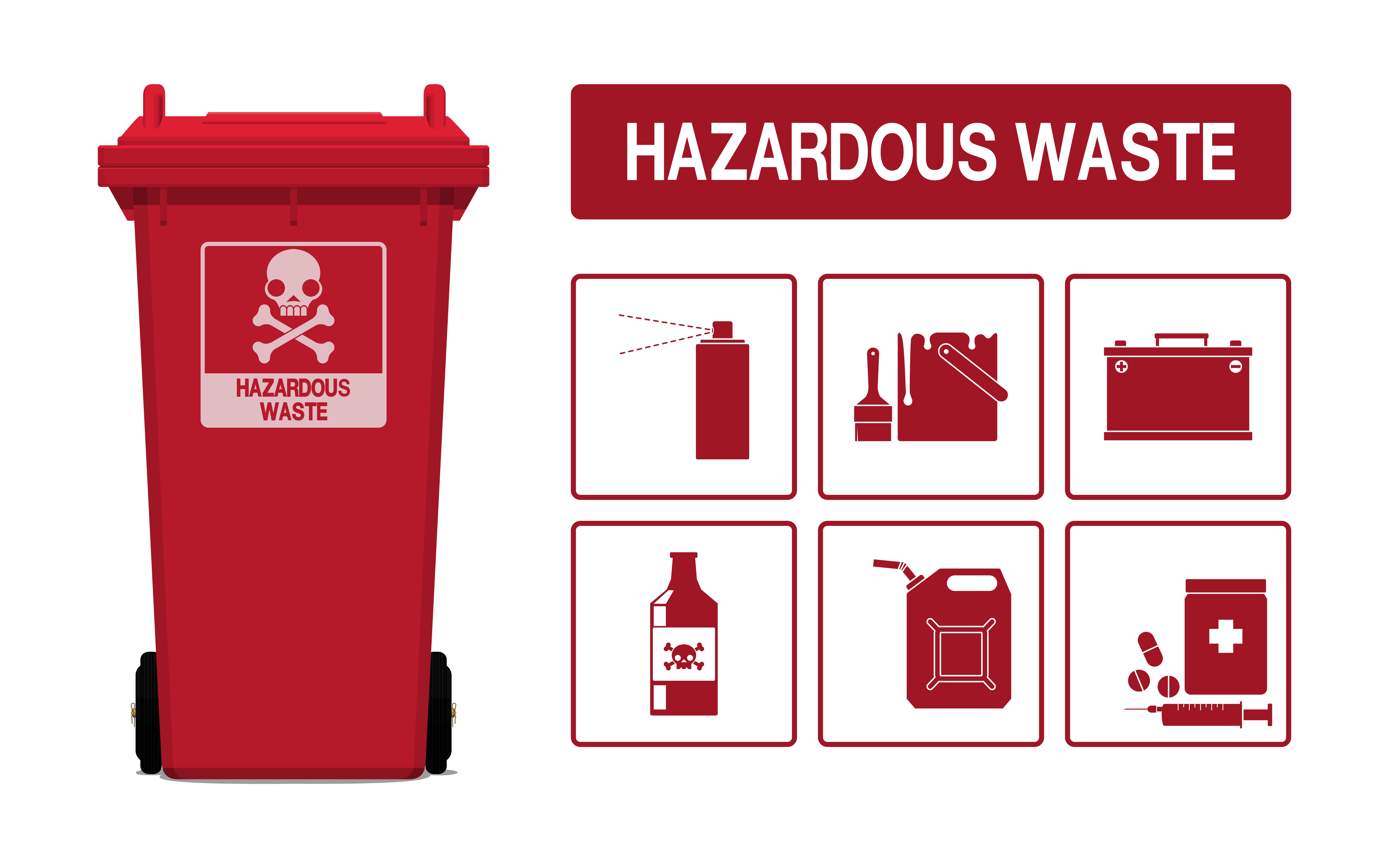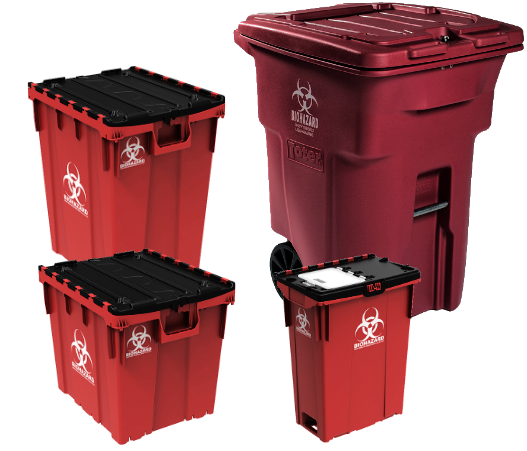Guardians of Cleanliness: Local Medical Waste Removal Service for Your Assurance
Guardians of Cleanliness: Local Medical Waste Removal Service for Your Assurance
Blog Article
Keep Ahead of Laws: Specialist Advice on Medical Waste Disposal
In a globe where the medical care industry is frequently developing, it is imperative for medical facilities to stay in advance of guidelines when it concerns the correct disposal of medical waste. With rigorous guidelines and regular regulative modifications, it can be testing to browse the intricacies of this procedure. With skilled recommendations, centers can make sure conformity and minimize threats associated with improper waste disposal. From understanding the various groups of medical waste to executing the best collection and segregation methods, this discussion will supply actionable ideas and beneficial understandings to assist facilities remain in advance of laws in the ever-changing landscape of clinical garbage disposal.
Understanding Clinical Waste Categories
Understanding clinical waste categories is essential for proper disposal and monitoring in healthcare centers. Medical waste describes any waste generated by medical care activities that might pose a danger to public health or the environment. It is vital to categorize clinical waste accurately to ensure its risk-free handling, therapy, disposal, and transportation.
There are a number of groups of medical waste that health care centers require to be acquainted with. The most typical groups include contagious waste, pathological waste, sharps waste, pharmaceutical waste, and chemical waste. Each group has certain standards and policies for its appropriate monitoring and disposal.
Infectious waste includes products polluted with blood or various other physical fluids, such as gloves, gowns, and research laboratory societies. Pathological waste refers to human tissues, organs, or body parts that require unique handling and disposal. Sharps waste consists of used needles, syringes, and other sharp things that can cause injury and transmit infections. Pharmaceutical waste makes up ended, extra, or infected medications that need cautious handling and disposal. Finally, chemical waste consists of solvents, anti-bacterials, and various other chemical substances used in health care facilities.
Remaining Up-To-Date With Regulatory Adjustments
Staying current with regulatory adjustments is important for medical care facilities to guarantee compliance and proper management of clinical garbage disposal. medical waste removal. With policies constantly evolving, it is crucial for medical care facilities to stay current to stay clear of charges, fines, and possible damage to the atmosphere and public health
To remain in advance of regulatory adjustments, health care centers must establish a system for surveillance and tracking updates. This can be done by subscribing to governing newsletters, going to workshops and meetings, and actively joining sector associations. Additionally, centers must designate a team member or group in charge of staying notified and distributing information to pertinent stakeholders.
Regular interaction with regulatory companies is also vital. Healthcare facilities should develop relationships with regional, state, and government agencies to ensure they understand any kind of changes in guidelines that might influence their waste administration techniques. This can be done through routine conferences, participation in public comment durations, and proactive interaction with governing agencies.
Furthermore, medical care facilities need to think about partnering with waste management business that specialize in medical waste disposal (medical waste disposal services with WasteX). These companies are usually well-versed in the most recent guidelines and can give guidance and support to make certain compliance
Executing Appropriate Collection and Partition Approaches
To properly manage medical waste disposal, health care facilities need to develop appropriate collection and partition techniques in conformity with regulative standards. Applying these approaches guarantees the secure handling and disposal of possibly unsafe materials, secures the setting, and lessens the danger of injuries and infections to medical care workers and the general public.
Proper collection and segregation methods entail using marked containers and classifying systems. Medical care centers must offer clearly classified containers for different kinds of clinical waste, such as sharps, transmittable waste, pharmaceutical waste, and non-hazardous waste. These containers must be color-coded and clearly marked to stay clear of complication and promote easy recognition.
Furthermore, health care facilities should educate their personnel on the appropriate treatments for accumulating and segregating medical waste. This consists of informing them on the different kinds of waste, the proper containers to use, and the importance of following policies and standards. Routine training sessions and refresher training courses must be conducted to make certain that personnel continue to be updated on finest techniques.
In addition, health care facilities need to establish a system for regular collection and disposal of medical waste. This might include partnering with qualified waste management firms that focus on imp source clinical waste disposal. These firms will make certain that the gathered waste is carried and dealt with in conformity with regulatory demands.
Picking the Right Disposal Techniques

Incineration is one of the most efficient and typical approaches for getting rid of specific kinds of clinical waste, such as pathological waste and sharps. It entails the regulated burning of waste at heats, reducing it to ash. Incineration can launch hazardous contaminants into the air and add to air pollution.

Other disposal approaches include chemical therapy, microwave treatment, and landfilling. Chemical therapy includes using chemicals to decontaminate and counteract the waste. Microwave treatment makes use of microwave energy to warmth and sanitize the waste. Landfilling involves burying the waste in a designated garbage dump location (medical waste disposal services with WasteX). However, landfilling needs to be the last resort because of the prospective threat of contamination to soil and groundwater.
Making Sure Conformity Via Documents and Training
After meticulously considering the suitable disposal approaches for clinical waste, medical care centers have to make certain conformity with laws and decrease environmental influence by applying reliable documents and training treatments. This step is vital in keeping a sustainable and risk-free environment for both healthcare workers and the basic public.

Health care workers who manage clinical waste needs to obtain ideal training on waste partition, taking care of, and disposal treatments. By providing comprehensive training, healthcare facilities can empower their staff to make informed choices and decrease the threat of improper waste disposal.
Conclusion
To conclude, staying in advance of laws in medical garbage disposal is essential for healthcare centers. medical waste removal near me. Understanding the different categories of clinical waste, remaining upgraded with governing adjustments, applying correct collection and partition approaches, picking the ideal disposal techniques, and making sure compliance via documents and training are all necessary steps. By complying with these guidelines, health care companies can successfully take care of and get rid of of clinical waste in a risk-free and responsible manner
From understanding the various classifications of medical waste to applying the ideal collection and segregation approaches, this discussion will provide workable tips and useful understandings to help centers remain ahead of laws in look these up the ever-changing landscape of medical waste disposal. - medical waste disposal services with WasteX
The most common groups include transmittable waste, pathological waste, sharps waste, pharmaceutical waste, and chemical waste. Medical care facilities ought to Clicking Here offer plainly labeled containers for different types of clinical waste, such as sharps, contagious waste, pharmaceutical waste, and non-hazardous waste. Medical care centers need to develop a comprehensive system to tape and track all facets of clinical waste disposal, consisting of kinds of waste created, amounts, and disposal approaches made use of. Medical care workers that handle clinical waste needs to obtain appropriate training on waste segregation, managing, and disposal procedures.
Report this page